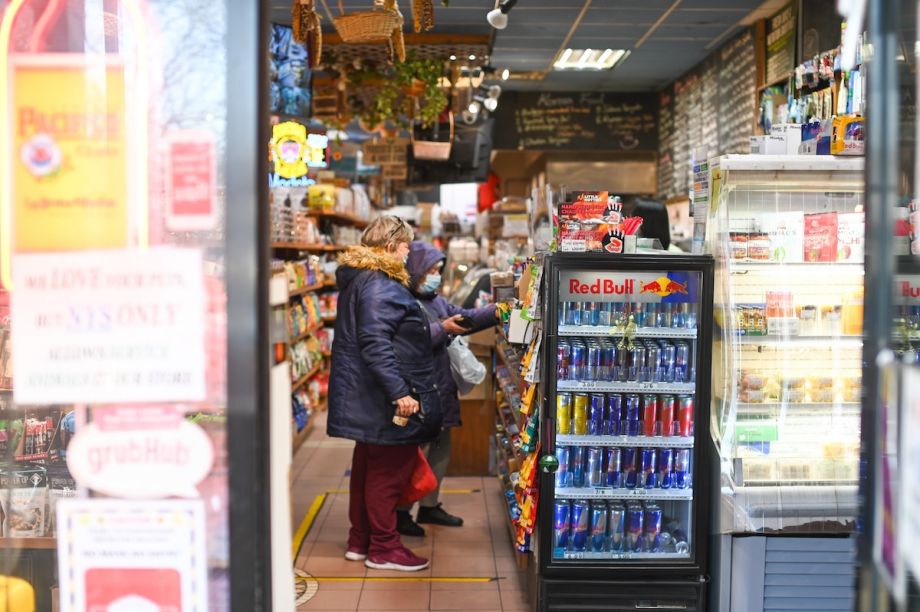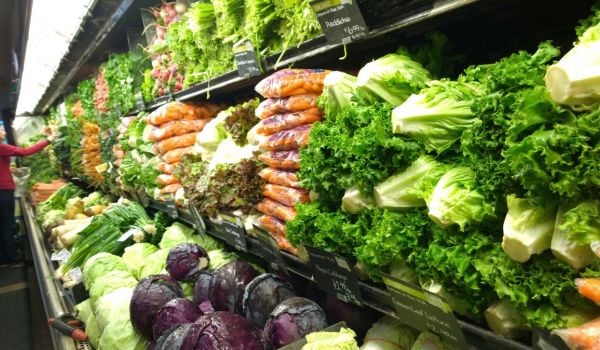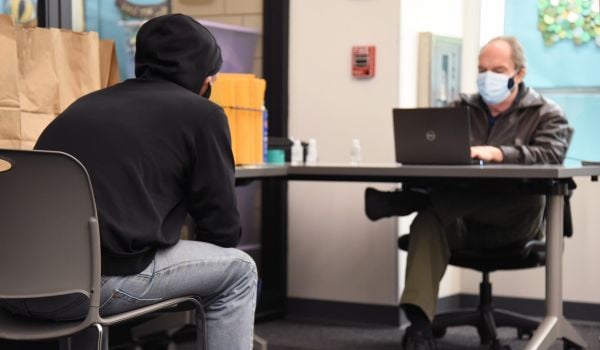It’s no secret that the impacts of Philadelphia’s long and tragic history of redlining and disinvestment are still hurting its Black residents today. Neighborhoods where communities of color have lived have lost opportunities to green spaces, clean air, quality education and healthy food retailers. Redlining and disinvestment have been linked to higher rates of crime, violence and policing.
Yet not enough study has been done into the connections between redlining, incarceration and food access. As I found during my own research at Drexel University, examining these interlinked problems shows how marginalized groups are victims of both unjust policing and unhealthy circumstances.
As Dr. Ashante Reese writes, “A contemporary abolitionist practice must create the conditions for healthy communities. To that end, the work of nourishing people and building just food systems is necessary.”
To target redlining and low access to healthy food, policy makers in Philadelphia and nationwide must reduce poverty, create accessible and affordable food production, address the impacts of climate change on food, and reverse the links between food, policing, and incarceration.
How food systems feed into the carceral system
The process of redlining Philadelphia neighborhoods in the 1930s — marking poor, Black and immigrant neighborhoods as hazardous and ineligible for mortgages — has contributed to many of the risk factors for poor health for Black Philadelphians. Redlined neighborhoods are at higher risk for gun violence and food apartheid. With less access to food staples, people are more likely to steal, especially during the pandemic. This predictably leads to more encounters with police and the carceral justice system.
The violence of food apartheid is exactly why the term has replaced “food desert” in recent years. The way apartheid systemically works to oppress people of lower social mobility makes it an apt descriptor for how food access is mapped out in neighborhoods.
Many Philadelphia neighborhoods can also be described as food swamps. A majority of the city’s food stores sell only unhealthy foods, and the density of these stores increases as the neighborhood income decreases. Across Philadelphia, the number of stores selling unhealthy foods outnumbers the number of stores selling healthy foods by nearly 10 to 1.
Neighborhoods that have a history of disinvestment are not just losing access to healthy foods, but also have disproportionate access to foods that can lead to health issues and illnesses. According to experts, adults over 50 who live in food swamps had a higher risk of stroke compared to those who do not.
The corner stores that sell these unhealthy foods also have multiple links to the carceral justice system. Many of them do not accept SNAP and EBT — which eliminates many poor people’s ability to shop there. But not only are such stores often a neighborhood’s only food source, their relative affordability leaves many people with few other options.
Worse, they are also overpoliced because both employees and police tend to assume the worst when dealing with Black, poor and homeless residents. The visibility of corner stores contributes to them being targeted by the police. They become “third places” in neighborhoods that lack parks, community centers and other spaces where residents can congregate. Because it is the only place to gather, criminal activity often ends up occurring there.
Living under food apartheid is made even more difficult for people who are limited to using food stamps to buy food. According to a congressional report on social services, SNAP is subject to the “drug felon ban,” which bars states from aiding persons convicted of drug-related felonies.
Food stamp availability impacts not just individuals but their entire families. SNAP access can play a role in the school-to-prison pipeline for students from low-income families. Students who are more heavily disciplined in schools are 17% more likely to be arrested and 20% more likely to go to jail in their adulthood.
Policy changes for anti-racist food systems
To begin to rectify the long-term impacts of racist policies such as food apartheid, redlining and mass incarceration, no single solution will be able to provide reparations and ensure that these practices cease.
The legacy of redlining must be abolished to address racism in our built environment. Strategies may include expanding mandatory coverage of non-clinician services in Medicaid, providing tax incentives to create employment in historically redlined neighborhoods, broadening SNAP coverage and eliminating state level SNAP asset tests, using incentives such as the Healthy Food Financing Initiative to increase retail outlets in redlined neighborhoods, removing zoning barriers and providing tax incentives for supermarket or healthy retail store placement, and expediting reviews and approval for grocery store placement
To create accessible and affordable food production, Philadelphia leadership must require licensed grocery stores to stock healthy and nutritious foods. This would force the plethora of corner stores and mini marts across the city to supply fresh produce and other healthy foods to customers. In recent years, Philadelphia City Councilman Kenyatta Johnson has introduced zoning bonuses as well as reforms to the bonus to ensure that low-income and marginalized neighborhoods have fresh food retailers. Creating more zoning bonuses like these is crucial to ensuring the development of more fresh food retailers.
The City of Philadelphia records approximately 40,000 vacant lots around the city, which we must rapidly adapt for more productive uses, including grocery store locations. In conjunction with the Pennsylvania Fresh Food Financing Initiative, Philadelphia is a national leader in grocery store zoning laws. The city currently offers a package of zoning incentives and gives residents across the city access to healthier foods by removing zoning barriers that make grocery store development less profitable. By continuing to create accessible zoning laws for grocery store development, the city can ensure that more residents have easy access to fresh foods.
Policy changes can also be made in order to untie food from the carceral justice system. SNAP must be made available to all Americans who need it. Allowing all families equitable access to SNAP benefits and universal free school lunches would be transformative for both children and their entire families.
Food apartheid and incarceration both stem from the same root of targeted racist policies such as redlining, environmental racism and the 13th Amendment. Addressing these problems must be similarly interconnected. These recommendations, I hope, offer a stepping stone into understanding and addressing these links in Philadelphia and beyond.
Farwa Zaidi (she/her/hers) is originally from New York and has lived in Philadelphia for almost five years. She recently graduated with her masters in urban strategy from Drexel University, where she published a thesis titled “Disinvesting in Food: How Philadelphia’s History of Redlining and Food Apartheid has Contributed to Mass Incarceration.” In her free time, Farwa reads and reviews books by authors of color on her Instagram page, @farwareads. She lives in West Philadelphia with her husband and cat.
















